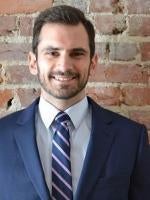Last week brought a partial resolution to a qui tam False Claims Act (“FCA”) case filed by an anonymous whistleblower. As announced by the United States Attorney for the Southern District of New York, the United States Government both intervened and settled the case with two pharmacies and their owners last Thursday. FPR Specialty Pharmacy LLC and Mead Square Pharmacy, Inc., both located in Victor, New York, along with their owners Christopher Casey and William Rue (collectively “Defendants”), accepted responsibility for violations of the FCA and Anti-Kickback Statute.
These violations related to the Defendants’ sales of compound prescription drugs to federal healthcare program beneficiaries. The Defendants agreed to pay $426,000 to settle all claims. The calculation of the settlement amount came after a review of the Defendants’ ability to pay. The actual damages the Defendants would have been liable for were most likely much larger. Under the FCA, the anonymous whistleblower who initially brought the fraud to the Government’s attention will receive a share of the settlement amount and can continue their case against any remaining defendants.
The fraudulent scheme perpetrated by the Defendants here has become somewhat commonplace amongst fraudsters in recent years. Generally, the scheme involves the selling of compound prescription drugs, often pain relief creams, which are made by the pharmacies by combining using a combination of different drugs. These compound drugs can quickly become quite expensive, reaching costs of thousands of dollars per bottle. In order to drive up revenues, the pharmacies and individuals running them target patients in federal and state backed healthcare programs and flout those programs’ regulations to sell as much of the compound cream as possible.
This fraudulent practice most often ends with the patients having to spend little or no money themselves but with the government footing the bill using taxpayer dollars. Often the cream is not necessary or effective. However, since the patient pays little to no cost, and is often pressured by pushy sales representatives, they end up purchasing the cream regardless.
The actions of the Defendants here track the typical method of compound pharmacy fraud. From 2011-2015, the Defendants pushed the sales of its compound analgesic cream, Focused Pain Relief, to patients in federal healthcare programs nationwide. These programs included TRICARE, Medicare, and other programs ran by the Department of Labor. Federal regulations and laws, including the Anti-Kickback Statute, require that patients under these programs pay certain co-payments when purchasing drugs.
Here, the Defendants illegally either waived or significantly reduced such co-payments. By doing so, they improperly incentivized patients to purchase Focused Pain Relief at little to no cost to them, regardless of an actual need for the cream. These purchases then caused the government to pay the pharmacies for the vast majority of the cream’s costs using taxpayers’ dollars.
Further, the Defendants also illegally paid out commissions to its sales representatives based on the quantity of Focused Pain Relief they sold. Paying such commissions is also a clear violation of the Anti-Kickback Statute. Finally, the Defendants violated numerous licensing regulations as they either did not secure or secured under false pretenses, licenses in multiple states in which they sold their products. All these activities led to each claim for reimbursement submitted under federal healthcare programs to be violations of the FCA.
As stated by United States Attorney Geoffrey S. Berman, when announcing the settlement, “the defendants here brazenly flouted basic rules on licensing and kickbacks to line their pockets with dollars from federal healthcare programs. That is a prescription for intervention by my Office and partners.” The majority of FCA cases and recoveries arise from fraud against federal healthcare programs.
In general, if you witness business practices by which healthcare entities are prioritizing revenues above the necessary and appropriate care for patients utilizing federal healthcare programs, such practices violate federal regulations and the FCA. It is important to note that this case also dealt with claims under various state laws analogous to the federal FCA, which were not part of the settlement agreement with the federal government. As many states have laws that protect the taxpayer dollars they spend on healthcare programs, companies and individuals can also be liable to those governments for their fraudulent acts.




 />i
/>i
